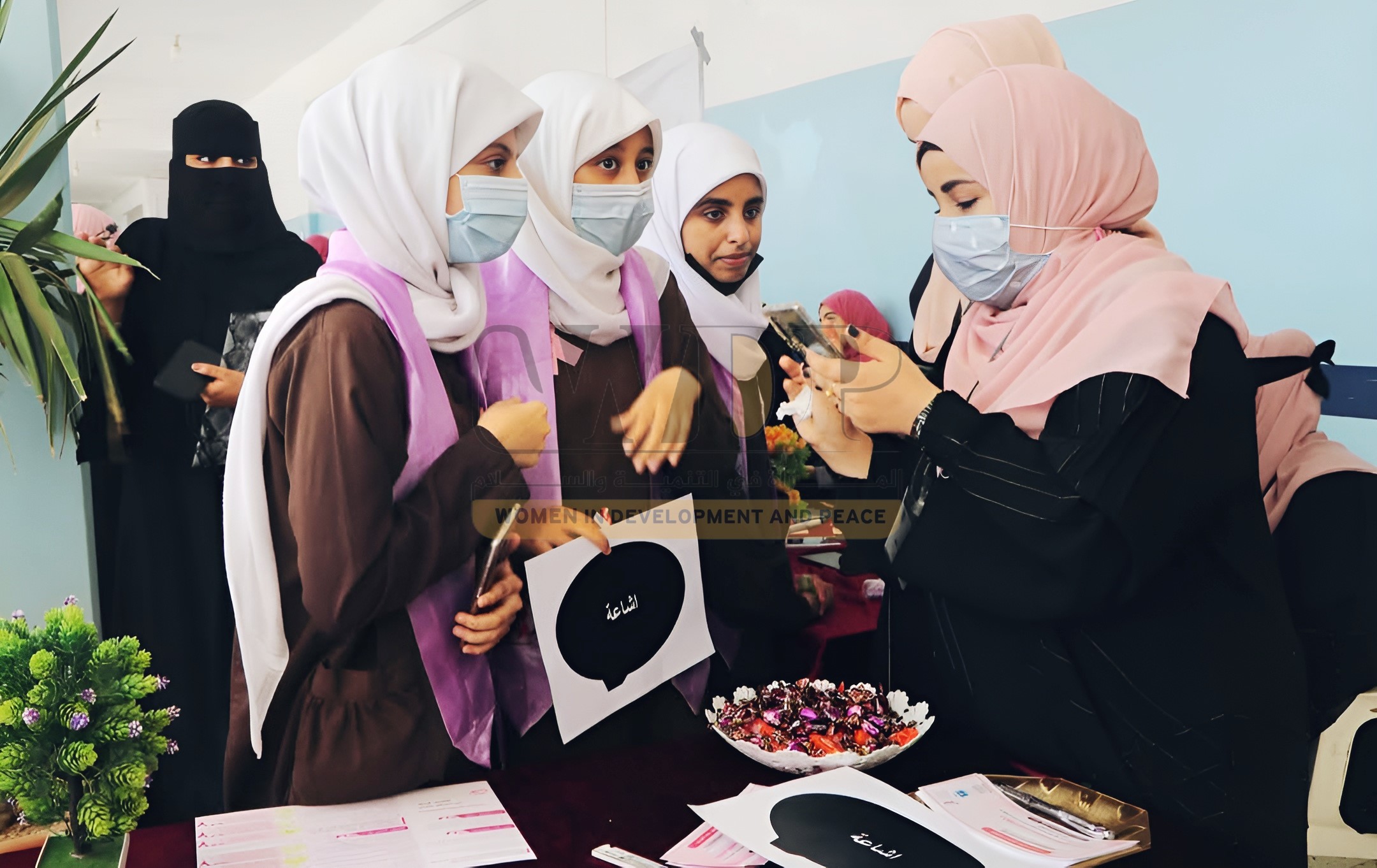Women in Development and Peace
Reproductive health in Yemen is a critical health and social issue facing significant challenges amidst the country’s complex political and economic situation. The reproductive health sector suffers from a shortage of resources and human capacity, as well as weak health infrastructure, directly impacting women’s health throughout their reproductive lives.
Among the most prominent challenges facing Yemen’s health sector is a lack of medical resources, including essential medicines and medical supplies. Many areas lack trained medical personnel in fields such as cesarean sections, increasing risks for mothers and newborns. Access to integrated health services, such as family planning, antenatal care, and safe delivery services, is also limited.
Issue 31 of “Women in Development and Peace” newspaper addresses this crucial topic of reproductive health in Yemen, highlighting its local and international dimensions. The issue aims to discuss the challenges and opportunities related to improving women’s health and safety amidst Yemen’s complex circumstances, including the ongoing conflict and increasing displacement.
The issue provides a comprehensive analysis across various topics, illuminating the roots and interconnected ramifications of this phenomenon. It also examines efforts to address it, the roles of various institutions, societal views on reproductive health, and how cultural and social values impact women’s health in Yemen.
Defining Reproductive Health
The issue also clarifies the definition of reproductive health and its importance as a fundamental human right, emphasizing women’s safety as a central element in promoting the health of the family and society as a whole. It presents an international perspective on reproductive health in Yemen, analyzing the efforts of international organizations in supporting this sector, especially given the country’s difficult humanitarian situation.
Health education is a vital part of improving reproductive health in Yemen. There is a critical need to raise awareness of women’s rights in reproductive health and to improve health education, particularly in rural areas with limited educational and health services.
Education for girls and young people on sexual and reproductive health should also be emphasized, including family planning, prevention of sexually transmitted diseases, and the importance of healthcare during pregnancy.
The Role of International Organizations
Improving reproductive health in Yemen requires international and local cooperation at all levels. Solutions must include sustainable funding for the health sector, strengthening health infrastructure, training more medical personnel in reproductive health, and improving access to information and health services in remote and rural areas.
The issue discusses the role of international and local organizations in strengthening reproductive health services through support for awareness campaigns and the provision of integrated health services, despite the challenges they may face. It examines the impact of economic deterioration on reproductive health; difficult economic conditions lead to a severe shortage of essential reproductive health services.
The issue also points to several important aspects of the current reality of reproductive health in Yemen, including the influence of cultural customs and traditions on societal acceptance of reproductive healthcare and the challenges posed by these social heritages that hinder improvement in this sector.
The lack of funding and conflict—one of the biggest obstacles to improving reproductive health in Yemen—have significantly impacted the health sector, making it difficult to provide the essential medical equipment and resources women need during pregnancy and childbirth. The destruction of health facilities and disruption of essential healthcare services have increased the suffering of pregnant women during childbirth.
Media and Displacement
Media plays a pivotal role in raising community awareness about reproductive health issues. Media campaigns and awareness initiatives can significantly contribute to changing cultural attitudes toward reproductive healthcare. Media messages focusing on women’s rights and the importance of safe healthcare can help reduce the social stigma surrounding reproductive health. Therefore, the issue highlights the importance of media in raising community awareness regarding reproductive health issues.
The issue also discusses how displacement has exacerbated reproductive health problems, highlighting the challenges women face in displacement areas. It emphasizes the role of government institutions and women’s organizations in strengthening reproductive health services, despite financial and logistical constraints.
The issue focuses on the serious health challenges women face, such as high maternal mortality rates and poor healthcare during pregnancy and childbirth. It addresses the perspectives and ideas of Yemeni youth on promoting reproductive health as part of a healthier future and provides recommendations from experts and specialists on improving reproductive health services, including increased funding, enhanced awareness, and development of health policies.
The Importance of Cooperation
The issue includes the importance of reproductive health as a fundamental right for women and a cornerstone of sustainable development in Yemen. It calls for concerted efforts among government agencies, international organizations, the media, and the local community to address existing challenges, adopt comprehensive policies to ensure improved health services, and enhance community awareness of the importance of this sector.
In summary, the issue indicates that reproductive health in Yemen requires concerted efforts from various parties, including the media, local and international organizations, and the government sector, to achieve improvements in women’s health status. The goal is to reduce cultural, social, and health barriers affecting the health of Yemeni society as a whole, strengthen reproductive healthcare services in conflict-affected areas, and improve health legislation that supports women’s rights to reproductive healthcare.

